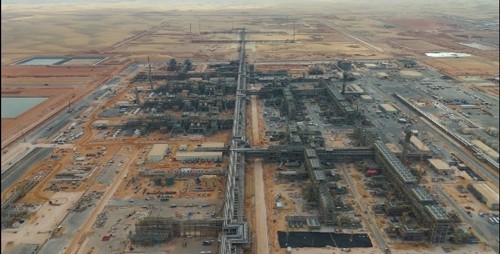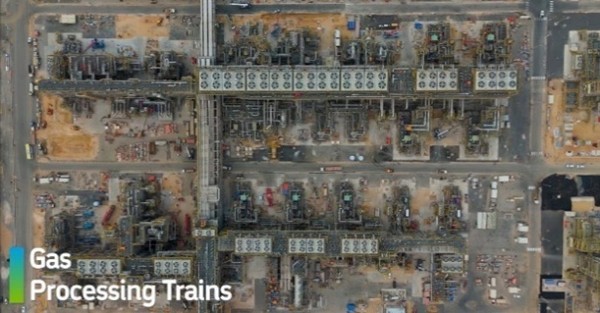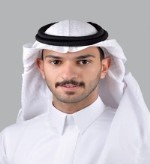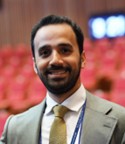A Scalable Approach for Modern
Gas Facility Design
FEATURED PAPER
By Abdulrahman S. Alsahlawi, Abdullah F. Al-Baroot, Mohammed F. Al-Amoudi
Kingdom of Saudi Arabia
Abstract
With the rapidly changing scenarios of gas plant design, choosing the best possible setup is important for operational, economic, and sustainability goals. Historically, gas plants have been built out in an “off-the-shelf” modular design, but the advent of the train-based concept design breaks away from the past. This paper analyses how JAFURAH Gas Plant, by implementing the train concept of philosophy, gains more in flexibility, progressive implementation and resource utilization.
The train concept moves away from the conventional centralized architecture and results in the development of flexible, scalable, and cost-effective systems that can accommodate changing industry needs. More than just a passing trend, the train-based approach reflects a strategic transition in station design-supporting enhanced operability, decreased complexity, and long-term viability in a competitive energy marketplace.
Keywords: Design Improvement, Project Management, Project Management Structures, Gas Trains Design
Introduction
The Strategic Unconventional Gas Initiative is a government action plan of Saudi Arabia to exploit its unconventional hydrocarbons. The project requires the construction of gas surface facilities to produce, process, and transport gas for increasing in-Kingdom electricity and energy requirements. The move complements the Kingdom’s long-term efforts towards energy diversification, sustainability, and national economic growth.

Jafurah Phase01 Drone Photo, Figure.1
Jafurah Basin Overview
The Jafurah Basin, located in Eastern Province, Saudi Arabia, is one of the largest unconventional gas resources in the region. It extends across both the North and South fields and offers significant development potential. The proposed infrastructure comprises the Jafurah Gas Plant (JFGP), which is a standard gas plant module: inlet facilities, condensate stabilizer section, Acid Gas Removal, dehydration, NGL, and a sales gas compressor. There is also an ISF (Industrial Support Facility) and a network of upstream infrastructure like flowlines, trunk lines, and GCPs (Gas Compression Plants). These systems are constructed to deliver well fluids from the well to the process facility for separation of gas and liquids and are transported through transmission pipelines to the JFGP to be treated.

Jafurah Gas Plant (Train01), Figure.2
Scope and Purpose of the Study
JFGP is facilities to treat gas and its associated liquids from the North and the South Jafurah fields. One of the significant concerns to be determined in the design of the environment includes an appropriate layout that will support future scalability and create a strict separation of concerns for the features and the execution process. Two main groups of configurations were studied: the classical modular configuration, with pools of the same kind of process units, connected to each other in series and from which the product flows, and the train configuration, a set of parallel independent process trains. If the train idea has been chosen, the facility will be built as a modular and staged process.
This section explains why it would be so easy to adopt for the Jafurah project with well-regarded advantages, such as design simplicity, phased construction, future expandability, being among the most notable considerations in concert with Unconventional Resources Program strategic intent.
More…
To read entire paper, click here
How to cite this paper: Alsahlawi, A. S., Al-Baroot, A. F., Al-Amoudi, M. F. (2025). Jafurah Gas Plant Train Concept Philosophy: A Scalable Approach for Modern Gas Facility Design, PM World Journal, Vol. XIV, Issue VIII, August. Available online at https://pmworldjournal.com/wp-content/uploads/2025/08/pmwj155-Aug2025-Alsahlawi-et-al-Jafurah-Gas-Plant-Train-Concept.pdf
About the Authors

Abdulrahman Alsahlawi
Kingdom of Saudi Arabia
![]()
Abdulrahman Alsahlawi, an Engineer with a background in Civil & Environmental Engineering, graduated with honors from King Fahd University of Petroleum and Minerals (KFUPM). He began his career in the Project Management Office (PMO), where he supported portfolio planning, contractor performance evaluation, and digital reporting dashboards. He then transitioned to a mega project team, contributing to the Jafurah gas development, where he applied his expertise to implement digital construction tools, enhance field execution, and streamline progress tracking. His passion for innovation and commitment to construction continue to fuel his journey in the industry.
He can be contacted at abdulrahman.alsahlawi@aramco.com

Abdullah Al-Baroot
Kingdom of Saudi Arabia
![]()
Abdullah Al-Baroot, a Supervisor Project Engineer with background of Chemical Engineering Science, graduated from King Fahd University of Petroleum and Minerals (KFUPM) in 2008. Since joining the energy industry in 2009, he has accumulated 15 years of extensive experience in the oil and gas sector. Currently, He is involved in the Jafurah gas plant development, where he has applied expertise to drive innovative solutions and contribute to the development of this significant project. His passion for engineering and commitment to excellence continue to fuel his journey in the energy sector.

Mohammed F Al-Amoudi
Kingdom of Saudi Arabia
![]()
Mohammed F Al-Amoudi, a Supervisor Project Engineer with background of Electrical Engineering Science, graduated from King Abdulaziz University of Petroleum and Minerals (KAU) in 2011. He accumulated 14 years of extensive experience in the Communities, Oil and Gas sector Mega Projects.
He began his career as a Project Engineer at KAPSARC, where he successfully managed the Mechanical, Electrical, and Plumbing (MEP) scope during the construction phase. Currently, he contributed to the development of the Jafurah gas plant, having been involved since the detailed design stage and continuing through procurement and construction.









